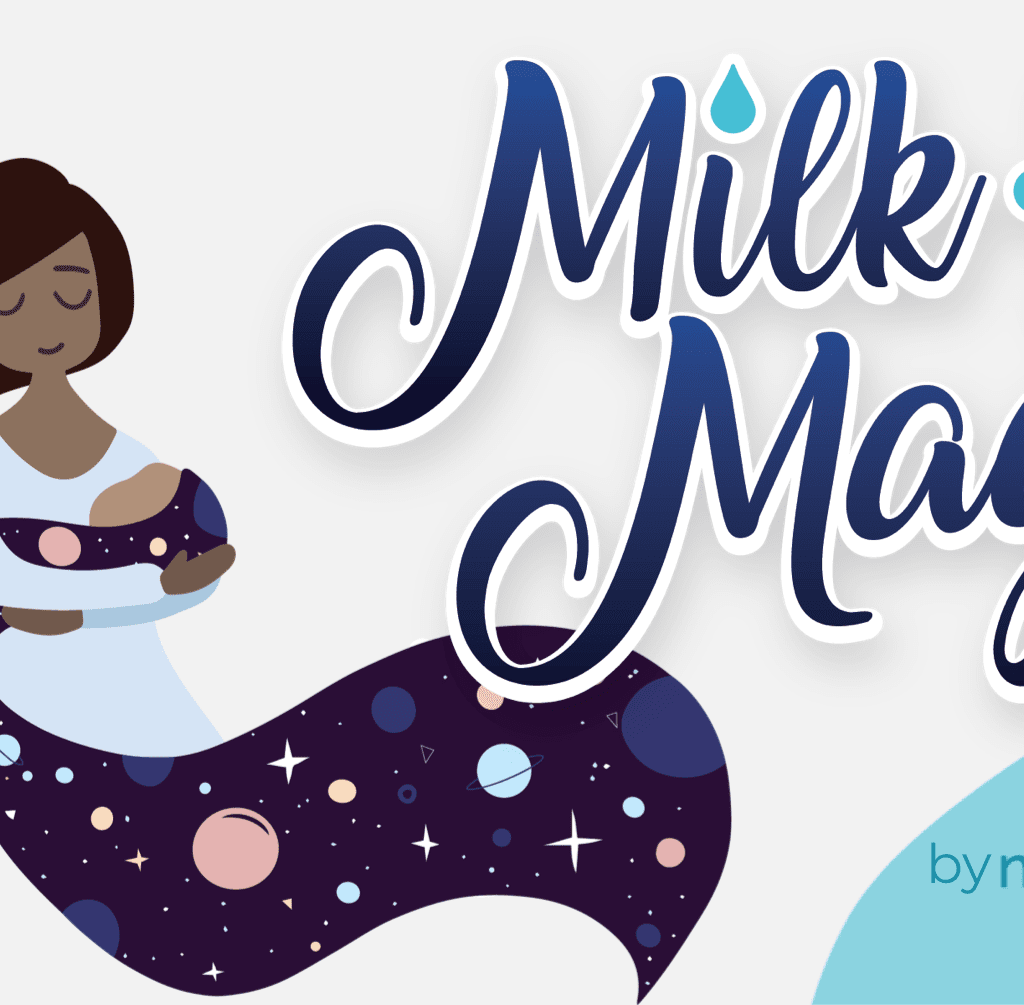This is part of a series we are doing to highlight our inspirational Milk Magic Educators. To learn more about the program including about how to sign up, visit Nurturely.org/milkmagic. Next up: Julia!
How did you hear about the Milk Magic Educator Program?
I am a For The Village Inc. Full Spectrum Doula and heard about the Milk Magic Educator Program through the non-profit.
What made you want to join the community?
As a doula, student midwife, and mother, I know how hard it is to get access to lactation support when you are not able to pay for classes or consultants. It is also hard for people like me to afford education to provide these services, so the fact that I could join the program and use the curriculum within the non-profit, extending the support these families could get, I thought it was a wonderful opportunity.
What is your background in human milk education, if any?
I am a birth doula and student midwife, so I have a pretty good background in human milk and the physiology of how it is produced. I also breastfed my son for almost 2 years, so I also have hands on experience in human milk feeding!
How do you hope the program will add to your experience?
I am always ready to learn more, and use that experience to help others, so I am excited for the opportunity to grow my knowledge.
Describe the community you serve and the community you belong to.
I live in South San Diego, 15 minutes from the San Ysidro boarder. I am Mexican, Navajo and Cuban, and am passionate about staying connected to my own heritage and supporting others in ways so they can embrace their own heritages and cultures.
For the Village provides free doula services to people of marginalized communities where data shows that they have poor birth outcomes in the United States, including: Black and indigenous people of color, migrant communities, and LGBTQA+ individuals. I joined For the Village as soon as I heard about it, and honestly think it is an amazing organization that I hope will spread like wildfire, because the work we do helps and we have records to prove it, so I’m really happy to be part of that, even in a small way.
Why are you passionate about human milk feeding equity?
I am passionate about human milk feeding because it is something that was taken from people like me, in Mexican, Cuban and the Native American communities. It has been seen for many years that if you give your baby your own milk, it’s not as good as giving them formula. The idea that formula is better than human milk has been perpetuated throughout every country my family is from, to the point where my cousins and grandmother from Mexico were actually appalled that I would choose to breastfeed my son. It is considered the “poor” thing to do and being able to buy formula is a huge status symbol, as well as seen as the “smarter” and “better” choice for your baby.
In the Black American community, choosing to feed with human milk is a huge hurdle that is going on, to heal the generational trauma that was caused by the forced wet nursing by slave owners. You don’t have to be part of a specific culture to want to support people as they overcome generational trauma and reclaim something as powerful as providing nourishment for your child(ren), and that is something I think we all deserve.
What has been the best part of the program?
I think the best part of the program is that it is building a community, I have met educators who want to do the same kind of work as me, and grown closer to people I already knew, but now we have another thing in common and it’s always great to be around people who have hearts who want to help in such a big and sensitive way.
How has the pandemic affected your work?
The pandemic has literally turned how I work upside down!
How have you adapted?
I have adapted by doing Zoom calls, FaceTime and other virtual meetings with clients, and just reaching out more than I usually would need to, to make sure clients know, that even though I cannot be with them in person, I am still here to provide support.
